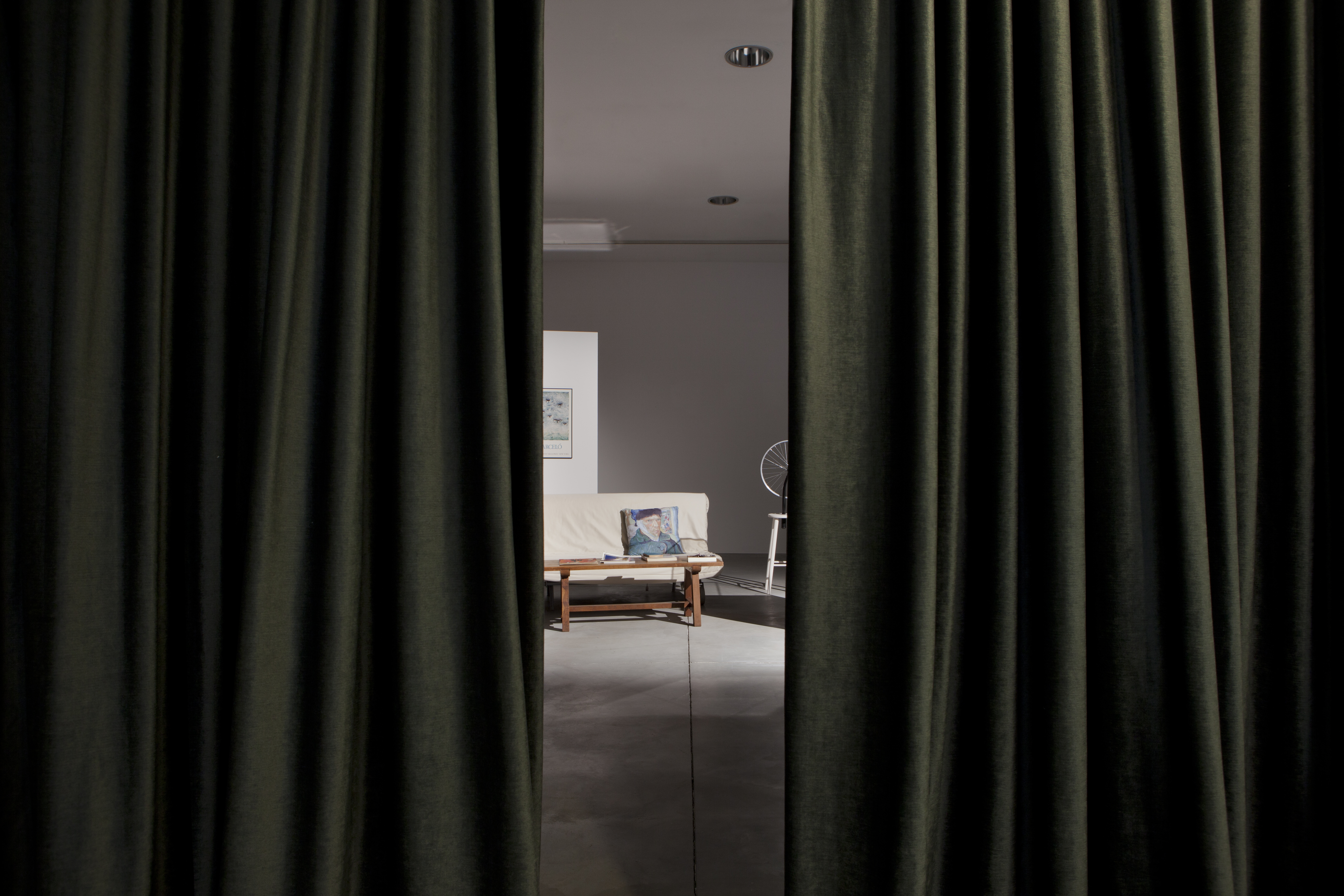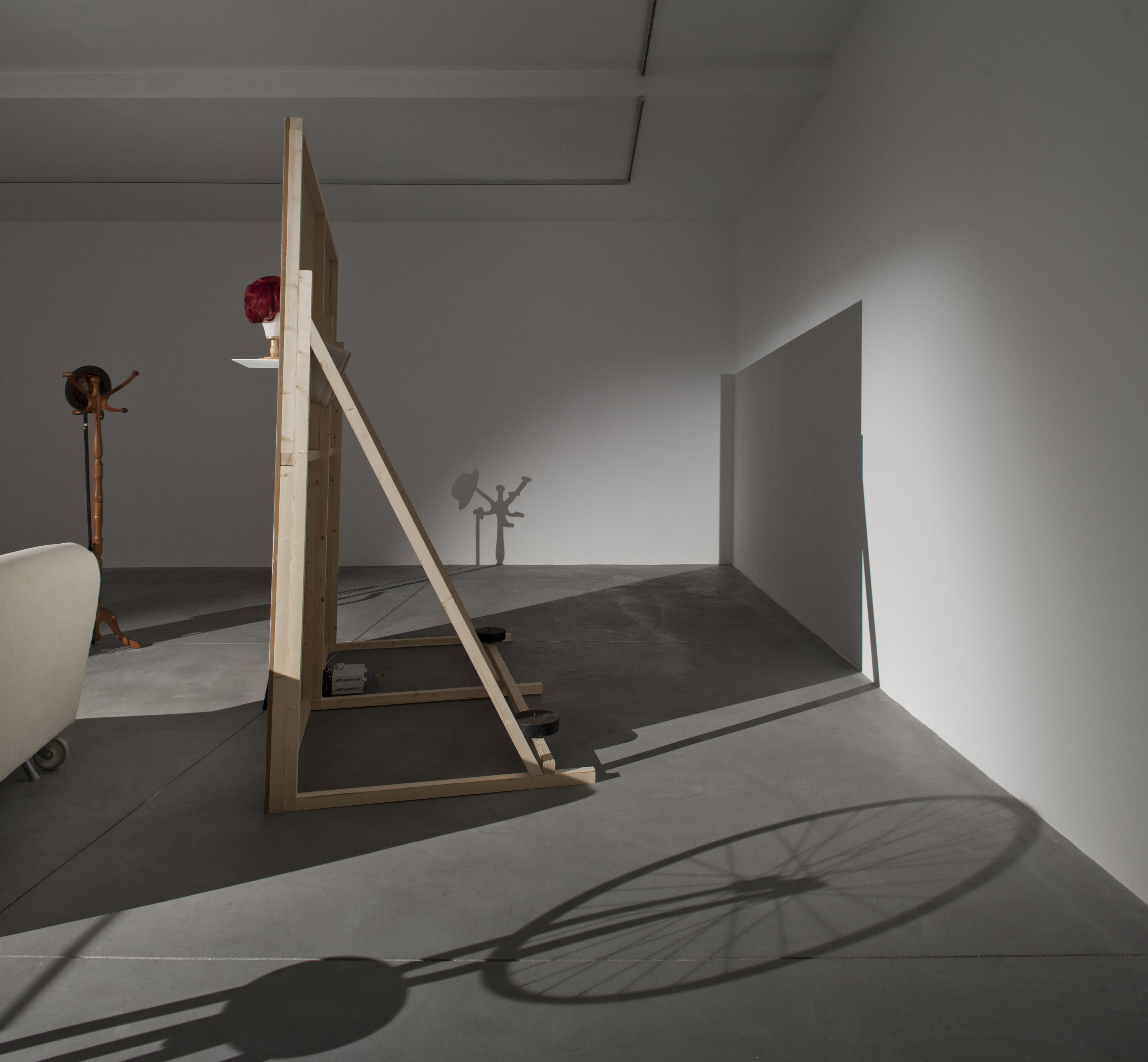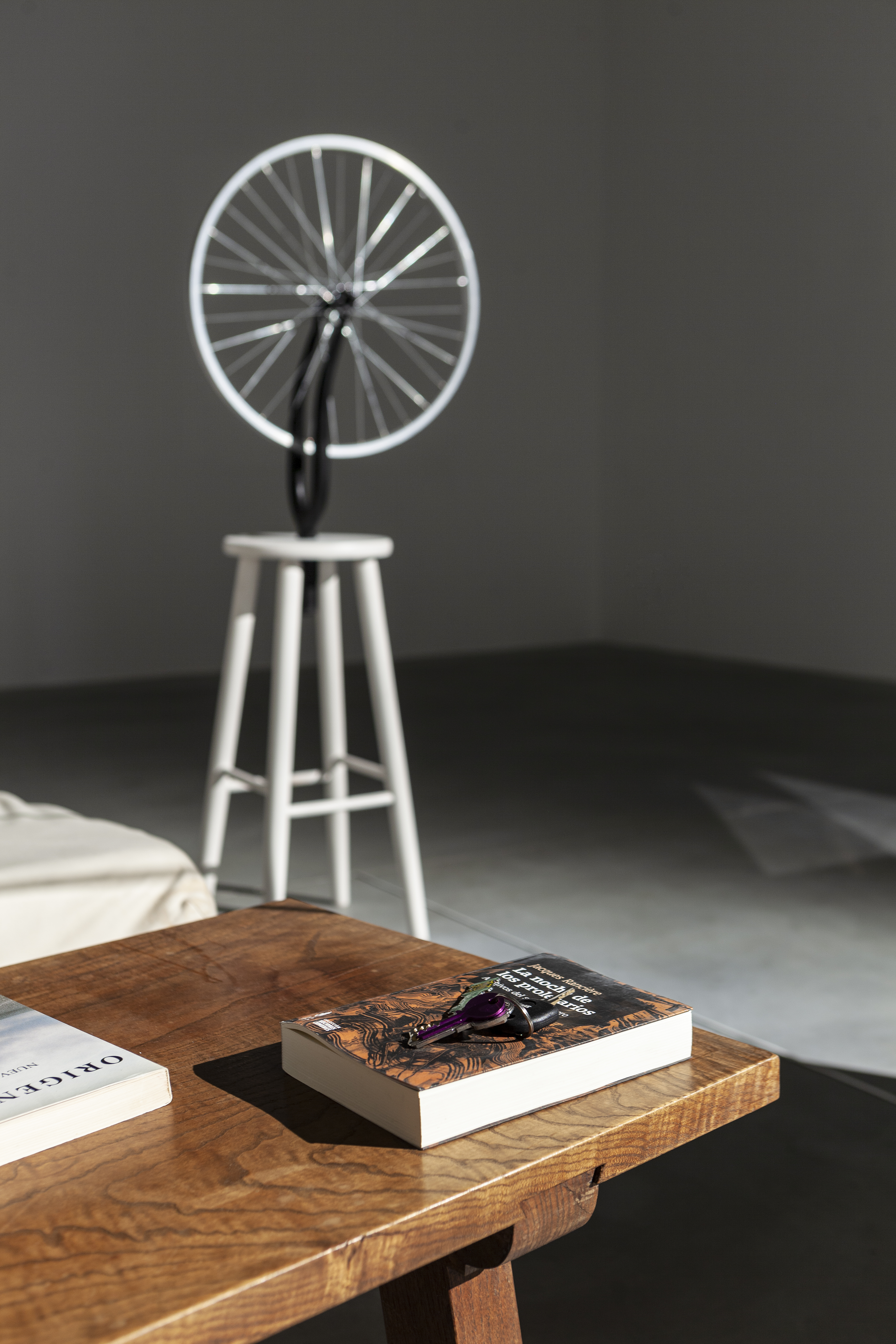The Best Job in the World
2021
Mixed-media installation, consisting of:
An audio piece (mp3) transmitted in three hidden speakers; 30’04”; a theatre spotlight; a baby cart; a funnel; a hat and a cane, inspired in Joseph Beuys, hanging from a coat rack; a custom made cushion with Vincen Van Gogh’s Self-Portrait with Bandaged Ear (1889) on a sofa bed; a table with a series of publications, such as the catalogue of the painting exhibition Origen y visión (nueva pintura alemana), held at Palacio de Velázquez at 1984 in Madrid, or an issue of the cultural magazine La Luna de Madrid; on top of a copy of Jacques Rancière’s Proletarian Nights there is a key chain, testimony of a round trip to New York; a fake fall; a custom made wig inspired the legendary Spanish gallerist Juana de Airzpuru, who founded ARCOMadrid art fair in 1982; a framed original poster of the first exhibition of Spanish artist Miquel Barceló al Leo Castelli gallery in New York in 1987; an unpublished photograph of the artist Esther Ibarrola entitled I Am th Sculpture (1992); a plinth with the work La chuleta (1991) from the artist Isidoro Varcárcel Medina and a replica of Marcel Duchamp’s readymade Rue de bicyclette by artist Suso Fandiño.
Dimensions variable.
Leer en español →
The Best Job in the World addresses a rarely acknowledged reality in conversations about art and artists: only the stories associated with success usually reach art history and the media, while many careers are cut short due to financial pressures, caregiving responsibilities, or disenchantment with a demanding and often unforgiving art system.
Over the course of two years, I conducted research and conversations with artists who were active in Spain from the 1980s onwards—performers, painters, sculptors, conceptual artists—who at some point decided, or were forced, to halt their artistic practice or public presence. Their testimonies —from Esther Ibarrola, Alberto Sánchez, Antonio Zúñiga, Joaquín Villa, Luisa Redondo, Miguel Lorente, Sergio Ojeda, and Jaume Alcalde— are woven into this work.
The installation takes the form of a theatre stage, where their voices are broadcast through hidden speakers, accompanied by objects stemming from our conversations. These elements bring together references to art history and everyday materials, pointing to the myths, challenges, and tensions that shape artistic careers.
[AUDIO] Single-channel version of the audio track in the installation. 28’07”.
Over the course of two years, I conducted research and conversations with artists who were active in Spain from the 1980s onwards—performers, painters, sculptors, conceptual artists—who at some point decided, or were forced, to halt their artistic practice or public presence. Their testimonies —from Esther Ibarrola, Alberto Sánchez, Antonio Zúñiga, Joaquín Villa, Luisa Redondo, Miguel Lorente, Sergio Ojeda, and Jaume Alcalde— are woven into this work.
The installation takes the form of a theatre stage, where their voices are broadcast through hidden speakers, accompanied by objects stemming from our conversations. These elements bring together references to art history and everyday materials, pointing to the myths, challenges, and tensions that shape artistic careers.
[AUDIO] Single-channel version of the audio track in the installation. 28’07”.












Credits
General installation views and details of the exhibition The Best Job in the World [El mejor trabajo del mundo], Fundación DIDAC (Santiago de Compostela, 2021-2022).
Images: Roi Alonso.
Single-channel version of the audio track in the installation. 28’07”.
General installation views and details of the exhibition The Best Job in the World [El mejor trabajo del mundo], Fundación DIDAC (Santiago de Compostela, 2021-2022).
Images: Roi Alonso.
Single-channel version of the audio track in the installation. 28’07”.